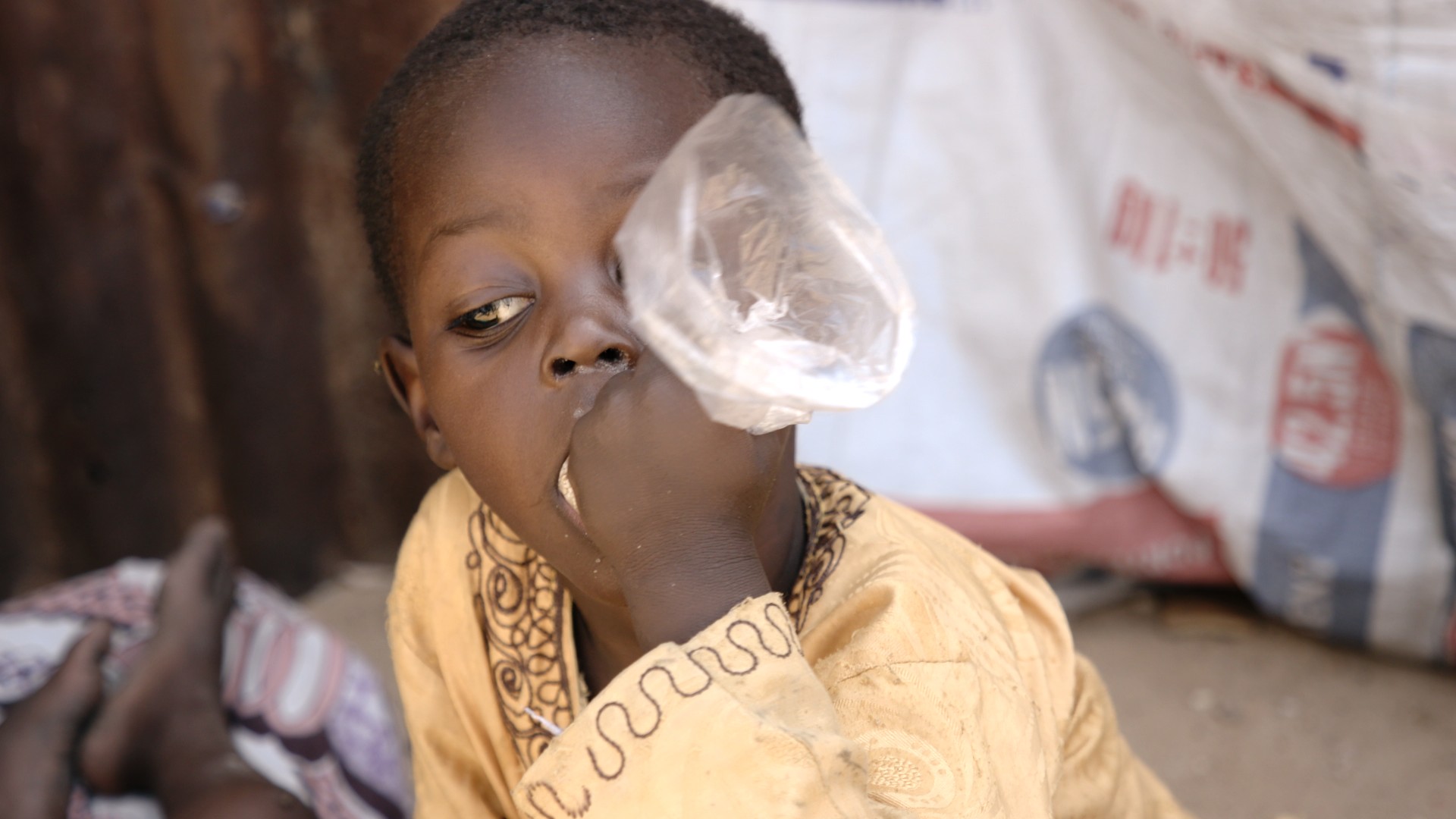Image via White House.
The United States is the largest contributor of foreign aid worldwide. Last year, it gave over $30 billion in aid alone for everything from efforts combating global poverty and disease, to education for girls in areas of the world where formal school isn't an option. Through the United States Agency for International Development (USAID) and a multitude of non-governmental organizations (NGOs), it also provide desperately needed support to the largest refugee crisis since World War ll. But all that could come to a crashing halt.President Trump formally announced a 2018 budget in early 2017 that included a massive decrease of the international affairs budget, a huge decision that has a massive human impact. Global food aid alone would drop from $3.5 billion (enough to feed 65 million people) to $1.5 billion."As soon as we saw the budget, a lot of NGOs were worried," Paul O'Brian, the Vice President of Policy and Advocacy at Oxfam America, told VICE Impact. So advocacy leaders from some of America's most prominent NGOs including Save the Children, CARE, Catholic Relief Services (CRS), Mercy Corps, and Oxfam came together as a unified front. Meeting once a week for an informal 'breakfast club' in Washington, D.C. as a collective, they looked at ways to strategize, number crunch, and talk best practices."I've never seen this level of cooperation, certainly across large NGOs to work together to make the broader case for defending U.S. poverty fighting efforts and humanitarian response," Paul added.Among top priorities was to the difference they could make on Capitol Hill.
Check out more videos from VICE:
Part of those strategies include rallying the troops of supporters to tell Washington why it matters that this funding doesn't disappear. For religious organizations like CRS, that means getting the church involved as well."In our advocacy work, we are bringing more and more Catholic leaders to Washington to raise the importance of international assistance on Capitol Hill. Voices from across the Catholic church join us in this effort because they recognize the value of our partnership with the US government.' Jill Gerschutz, Senior Legislative Specialist for CRS, told VICE Impact.While many believe it's an important moral imperative as an American value to reduce poverty and provide aid to those in need, it's also a matter of national security -- a term that the Trump administration has put at the forefront of its rhetoric.Despite the hard work the informal breakfast club is doing to help prevent losses to aid in the budget, they are also looking at worst case scenarios and alternate plans."We are looking for what programs can be funded through other mechanisms, other governments, the EU, or private public partnerships, and then how many can we can through our fundraising efforts," Marcey said of CARE's efforts. "It's really a matter of triage. And that takes time."
Advertisement
"We are quickly pivoting from advising Congress on our points of view to being a major support for congressional offices to help challenge some of the assumptions the office of management and budget are making, " said Liz Marcey, Senior Policy Advocate at CARE. "We take heart in the fact that Congress has the power of the purse, and they are pushing back.""I've never seen this level of cooperation, certainly across large NGOs to work together to make the broader case for defending U.S. poverty fighting efforts and humanitarian response."
Advertisement
Check out more videos from VICE:

Part of those strategies include rallying the troops of supporters to tell Washington why it matters that this funding doesn't disappear. For religious organizations like CRS, that means getting the church involved as well."In our advocacy work, we are bringing more and more Catholic leaders to Washington to raise the importance of international assistance on Capitol Hill. Voices from across the Catholic church join us in this effort because they recognize the value of our partnership with the US government.' Jill Gerschutz, Senior Legislative Specialist for CRS, told VICE Impact.While many believe it's an important moral imperative as an American value to reduce poverty and provide aid to those in need, it's also a matter of national security -- a term that the Trump administration has put at the forefront of its rhetoric.
Former military leaders from the military have even aligned voices to show why it matters. This spring, over 120 retired four and five star generals wrote a letter to leaders -- including Sec. of State Rex Tillerson - speaking to the importance of that funding to national security in particular. "We urge you to ensure that resources for the International Affairs Budget keep pace with the growing global threats and opportunities we face. Now is not the time to retreat," the letter reads."We are looking for what programs can be funded through other mechanisms."
Advertisement
When asked what the public can do to prevent the cuts Marcey didn't hesitate to respond. "The people being impacted by these potential budget cuts can't pick up the phone and call their member of Congress. It's up to us," she said, adding: "They are so grateful for our support and are making leaps and bounds in order to escape poverty and stand on their own two feet. They're hoping Americans continue to stand up for them."Learn more about CARE's 'Don't Cut Lives' Campaign or take action with Oxfam.Call your elected officials and let them know how you feel about the decision. If you don't know how to reach your representatives use this link or widget below.READ MORE: Trump's CDC and USAID Vacancies Are a National Security Risk
